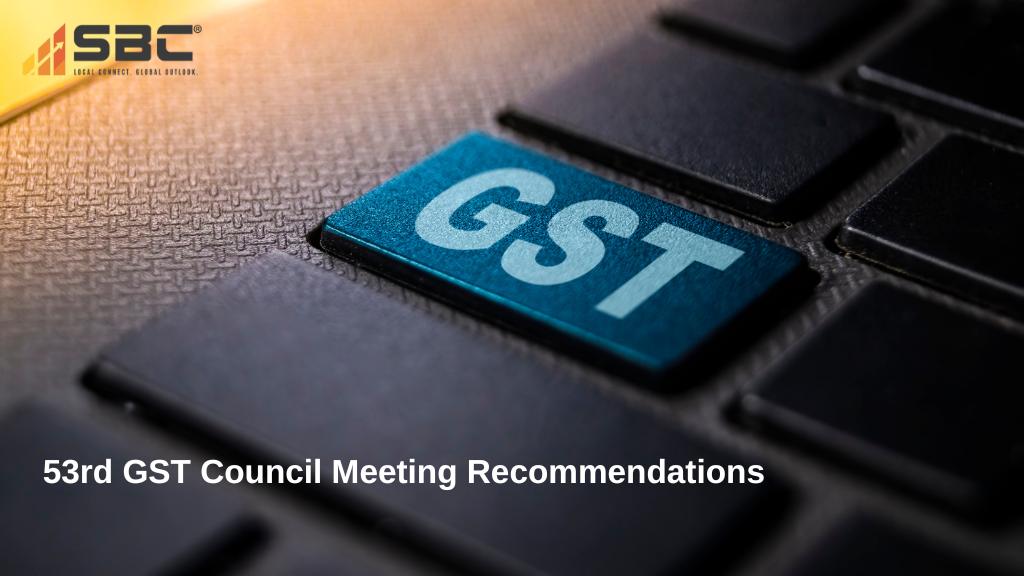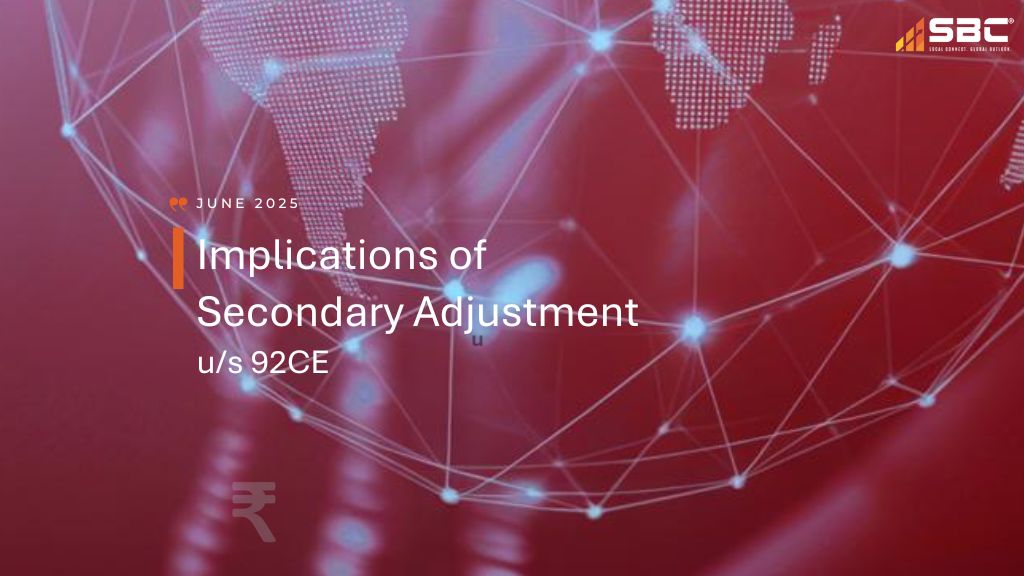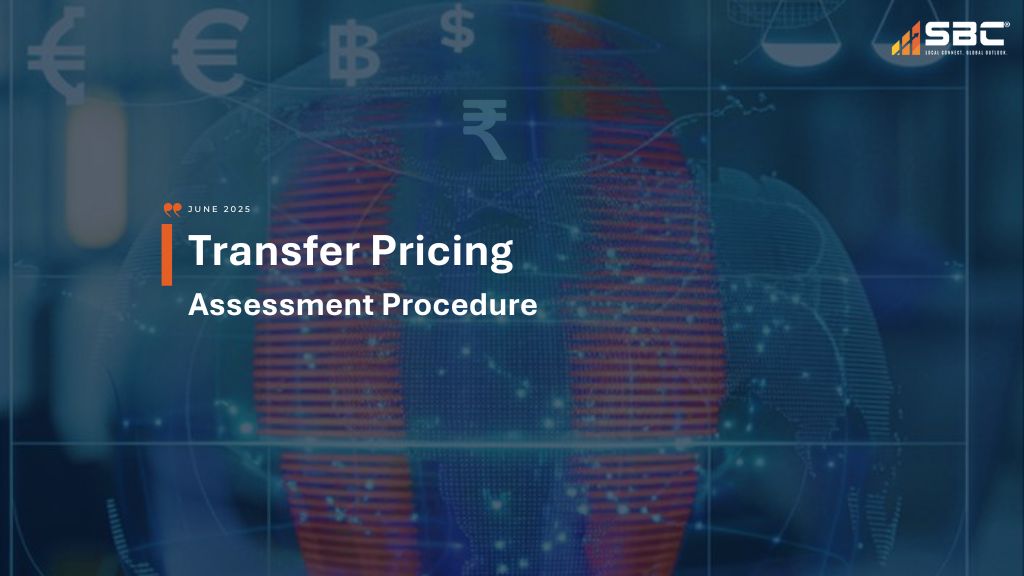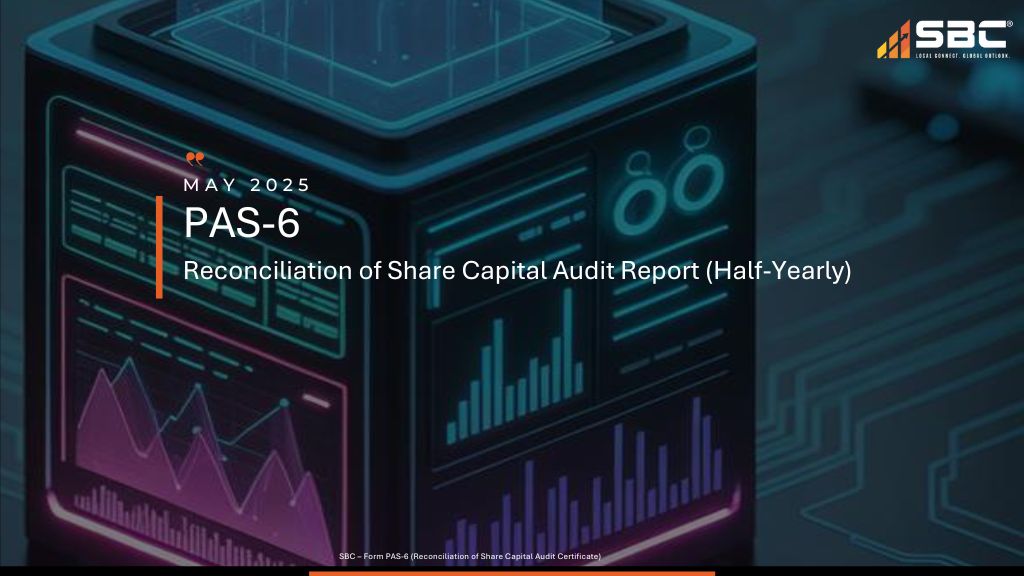GST Update – 53rd GST Council Meeting Recommendations

June 28, 2024
1. Amensty Scheme for Tax demands for the period FY 2017-18 to FY 2019-20:
Provision: Section 128A provides for a conditional waiver of interest, penalty, or both, concerning demands raised under Section 73 of the CGST Act for the financial years 2017-18 to 2019-20.
Eligibility Criteria:
• The taxpayer must pay the full amount of tax demanded in the notice by 31.03.2025.
• The waiver does not apply to demands for erroneous refunds.
Key Points:
1. Scope: This provision applies specifically to demands under Section 73, which generally deals with non-fraudulent tax discrepancies such as short payment or non-payment of tax.
2. Time Frame: The relief is applicable for the tax periods from FY 2017-18 to FY 2019-20.
3. Exclusion: Demands related to erroneous refunds are not covered under this waiver.
Objective: The objective of this insertion is to incentivize taxpayers to settle their tax dues without the additional burden of interest and penalties, thus ensuring better compliance and reducing
litigation.
SBC Comments:
The proposed scheme is currently limited to Section 73 cases (non-fraud) only. This should be re-examined as many notices are issued under Section 74 just to cover the limitation period, which may not involve fraud or suppression. In fact, notices on the same subject matter are being issued under both Sections 73 and 74. The law stipulates that a Section 74 notice will be converted into a Section 73 notice if fraud or suppression is not established. An extended consideration is whether a company can apply for amnesty now, subject to the future outcome.
2. Financial Threshold for Appeals
The GST Council has recommended implementing prescribed monetary limits for filing appeals by the department in GST cases before various judicial bodies. This measure aims to reduce government litigation and streamline the legal process. The proposed monetary limits, subject to certain exclusions, are as follows:
• GST Appellate Tribunal (GSTAT): ₹20 lakhs
• High Court: ₹1 crore
• Supreme Court: ₹2 crores
By setting these monetary thresholds, the Council seeks to minimize unnecessary appeals and focus on significant cases, thereby enhancing the efficiency of the legal system and alleviating the burden on both courts and taxpayers.
SBC Comments:
Though these thresholds reduce the burden on the government, many cases are not receiving proper remedies at the Commissioner (Appeals) level, prompting taxpayers to seek relief from the High Courts. Taxpayers anticipated reduced litigation costs with the establishment of the GST Appellate Tribunal. However, its jurisdiction is limited to demand cases of INR 20 lakhs or more, which does not fully address their concerns.
3. Valuation of Corporate guarantees:
The GST Council has recommended amending Rule 28(2) of the CGST Rules retrospectively, effective from 26.10.2023, and issuing a circular to clarify various issues regarding the valuation of services for providing corporate guarantees between related parties. It has been clarified that the valuation under Rule 28(2) of the CGST Rules will not apply in cases of the export of such services or where the recipient is eligible for full input tax credit.
SBC Comments:
There were many issues have been raised regarding the newly introduced provisions concerning the deemed 1% value for corporate guarantees between related parties under Rule 28(2).
These include whether the 1% applies to the loan amount disbursed or the sanctioned amount, and whether the provision of a corporate guarantee is considered a one-time supply, requiring GST to be paid only at the time of entering into the corporate guarantee agreements. A proposed clarification aims to address these concerns, helping to avoid future litigation.
4. Reduction in Pre-Deposit Amounts for Filing Appeals to Ease Taxpayer Cash Flow
The GST Council recommended reducing the amount of pre-deposit for filing of appeals under GST to ease cash flow and working capital blockage for the taxpayers. The maximum amount for filing an appeal with the appellate authority has been reduced from Rs. 25 crores CGST and Rs. 25 crores SGST to Rs. 20 crores CGST and Rs. 20 crores SGST. Further, the amount of pre-deposit for filing an appeal with the Appellate Tribunal has been reduced from 20% with a maximum amount of Rs. 50 crores CGST and Rs. 50 crores SGST to 10 % with a maximum of Rs. 20 crores CGST and Rs. 20 crores SGST.
Existing:
- The Maximum amount of Pre-deposit for filing an appeal with an Appellate authority is Rs. 25 crores CGST and Rs. 25 crores SGST
- Pre-deposit for filing an appeal with the Appellate Tribunal 20% with a maximum amount of Rs. 50 crores CGST and Rs. 50 crores SGST
Proposed:
- The Maximum amount of Pre-deposit for filing an appeal with an Appellate authority is Rs. 20 crores CGST and Rs. 20 crores SGST
- Pre-deposit for filing an appeal with the Appellate Tribunal 10 % with a maximum of Rs. 20 crores CGST and Rs. 20 crores SGST.
SBC Comments:
It is a welcome move from GST Council as it reduces significant cash blockage for the tax payers as constitution of Tribunal is still in progress.
5. Clarification regarding the valuation of the supply of import of services by a related person where the recipient is eligible for full input tax credit:
The GST Council The Council recommended clarifying that in cases where the foreign affiliate is providing certain services to the related domestic entity, for which full input tax credit is available to the said related domestic entity, the value of such supply of services declared in the invoice by the said related domestic entity may be deemed as open market value in terms of the second proviso to Rule 28(1) of CGST Rules. Further, in cases where full input tax credit is available to the recipient if the invoice is not issued by the related domestic entity with respect to any service provided by the foreign affiliate to it, the value of such services may be deemed to be declared as Nil and may be deemed as open market value in terms of second proviso to Rule 28(1) of CGST Rules.
SBC Comments:
A long-awaited clarification on the import of services will enable corporations to save on tax liabilities, interest, and penalties where GST was not paid on such imports. This includes issues like the payment of corporate guarantee fees or payments towards secondment services, which have been subjects of ongoing litigation. The amendment mirrors provisions for domestic cross-charges between related parties.
While the clarification addresses situations where credit is available, it remains a matter of litigation where no credit is available. Key points include:
1. Examining the option to go under the newly proposed Amnesty scheme.
2. Representing before the Government under the newly proposed Section 11A to seek a waiver where it was an industry practice not to pay GST.
6. Proposal for New Section 11A in CGST Act to Regularize Non-Levy or Short Levy of GST
The GST Council recommended inserting a new Section 11A in the CGST Act to give powers to the Government, on the recommendations of the Council, to allow regularization of non-levy or short levy of GST, where tax was being short paid or not paid due to common trade practices.
SBC Comments:
This is a welcome move from the GST Council and This provision aims to reduce litigation and disputes arising from past practices. By regularizing non-levy or short-levy cases, it helps in resolving potential conflicts between taxpayers and tax authorities amicably. It promotes a more cooperative compliance environment and reduces the administrative burden on tax authorities and taxpayers.
7. Amendment in Section 16 of the IGST Act and Section 54 of the CGST Act to Curtail Refund of IGST on Export Duty Payable Goods
The Council has recommended amendments in Section 16 of the IGST Act, 2017 i.e. Eligibility and conditions for taking input tax credit, and Section 54 of the CGST Act, 2017 i.e. Refund of tax that the refund in respect of goods, that are subjected to Export Duty, is restricted, irrespective of whether the said goods are exported without payment of taxes or with payment of taxes, and such restrictions should also be applicable if such goods are supplied to an SEZ developer or an SEZ unit for authorized operations.
SBC Comments:
Through this amendment the GST Council trying to reduce the restricted exports from India by not just restricting refund of on export of goods but also restricting input tax credit on the same.
8. Sun-set clause for Anti-Profiteering cases only up to April 1, 2025 in GSTAT
The GST Council recommended inserting a new Section 11A in the CGST Act to give powers to the Government, on the recommendations of the Council, to allow regularization of non-levy or short levy of GST, where tax was being short paid or not paid due to common trade practices.
SBC Comments:
The introduction of a sunset clause for anti-profiteering provisions marks a significant step towards simplifying the GST compliance landscape. This change reflects the maturity of the GST regime and the reduced necessity for stringent transitional provisions as businesses and the tax ecsystem have adapted to the new tax structure.
9. Common time limit to be prescribed to issue notices u/s. 73 and 74:
Presently, there is a different time limit for issuing demand notices and demand orders in cases where charges of fraud, suppression, willful misstatement etc., are not involved, and in cases where those charges are involved. In order to simplify the implementation of those provisions, the GST Council recommended to provide for a common time limit for issuance of demand notices and orders in respect of demands for FY 2024- 25 onwards, in cases involving charges of fraud or willful misstatement and not involving the charges of fraud or willful misstatement etc. Also, the time limit for the taxpayers to avail the benefit of reduced penalty, by paying the tax demanded along with interest, has been recommended to be increased from 30 days to 60 days.
SBC Comments:
The issue of classification of issue into fraud and non-fraud cases is not limited to GST era but also exists in pre-GST era of Service Tax, Excise Tax, etc. Hopefully the new amendments proposed will resolve this issue.
10. Transitional Credit for ISD Invoices:
The Council recommended amendment in section 140(7) of CGST Act retrospectively w.e.f. 01.07.2017 to provide for transitional credit in respect of invoices pertaining to services provided before the appointed date and where invoices were received by Input Service Distributor (ISD) before the appointed date.
SBC Comments:
A long-standing litigation is proposed to be resolved where the service tax invoices were received by ISD prior to the appointed date, however, were not distributed pre-introduction of GST, as was required by the transition provisions. It appears that availement / distribution of such credits (where invoices were received before the appointed date) will also be now permitted u/s. 140(7) of the CGST Act.
11.Introduction of Optional Facility in FORM GSTR-1A
The Council recommended providing a new optional facility by way of FORM GSTR-1A to facilitate the taxpayers to amend the details in FORM GSTR-1 for a tax period and/ or to declare additional details, if any, before filing of return in FORM GSTR-3B for the said tax period. This will facilitate taxpayer to add any particulars of supply of the current tax period missed out in reporting in FORM GSTR-1 of the said tax period or to amend any particulars already declared in FORM GSTR-1 of the current tax period (including those declared in IFF, for the first and second months of a quarter, if any, for quarterly taxpayers), to ensure that correct liability is autopopulated in FORM GSTR-3B.
SBC Comments:
This new FORM GSTR-1A will ensue reporting of invoices which are missed reporting in GSTR-1 but are identified before filing of GSTR-3B. This will eliminate the GSTR-1 Vs. 3B differences
araised due to manual adjustments done in GSTR-3B for the issues identified post filing of GSTR-1.
12.Exemption from Filing FORM GSTR-9/9A for FY 2023-24 for Taxpayers with Turnover up to Two Crore Rupees
The Council recommended that filing of annual returns in FORM GSTR-9/9A for the FY 2023-24 may be exempted for taxpayers having aggregate annual turnover upto two crore rupees.
13.GST Appeal Pre-deposit made through DRC-03
The Council recommended amendment in Rule 142 of CGST Rules, 2017 and issuance of a circular to prescribe a mechanism for adjustment of an amount paid in respect of demand through FORM GST DRC-03 (voluntary tax payment Form for taxpayers) against the amount to be paid as pre-deposit for filing the Appeal.
14.Bio-metric based Aadhaar authentication on All-India basis
The Council recommended roll-out the biometric-based Aadhaar authentication of registration applicants on the PAN India basis in a phased manner. This will strengthen the registration process in GST and will help in combating fraudulent input tax credit (ITC) claims made through fake invoices.
SBC Comments:
Though this is a welcome move from GST Council to curb fake input tax credit (ITC) claims, it is practically difficult to implement for the large corporations where the directors are located at corporate office and GST registrations are required to take all over India.
15. Time-limit to claim ITC in respect of invoices issued by the recipient under Reverse Charge Mechanism (RCM):
The Council recommended to clarify that in cases of supplies received from unregistered suppliers, where tax has to be paid by the recipient under reverse charge mechanism (RCM) and invoice is to be issued by the recipient only, the relevant financial year for calculation of time limit for availment of input tax credit under the provisions of section 16(4) of CGST Act is the financial year in which the invoice has been issued by the recipient.
16.Summary of Rate Changes and Exemptions:

17.Relaxation in Section 16(4) of CGST Act
A. In respect of initial years of implementation of GST, i.e., financial years 2017-18, 2018- 19, 2019-20 and 2020-21: The GST Council recommended that the time limit to avail input tax credit in respect of any invoice or debit note under Section 16(4) of CGST Act through any return in FORM GSTR 3B filed upto 30.11.2021 for the financial years 2017-18, 2018-19, 2019-20 and 2020-21, may be deemed to be 30.11.2021. For the same, requisite amendment in section 16(4) of CGST Act, retrospectively, w.e.f. 01.07.2017, has been recommended by the Council.
B. with respect to cases where returns have been filed after revocation: The GST Council recommended retrospective amendment in Section 16(4) of the CGST Act, to be made effective from July 1st, 2017, to conditionally relax the provisions of Section 16(4) of the CGST Act in cases where returns for the period from the date of cancellation of registration/ effective date of cancellation of registration till the date of revocation of cancellation of the registration, are filed by the registered person within thirty days of the order of revocation.
SBC Comments:
The relaxation in Section 16(4) of the CGST Act is a significant relief measure aimed at addressing the challenges faced by taxpayers during the initial years of GST implementation. By extending the deadlines for availing ITC and including provisions for returns filed after revocation of registration, the GST Council aims to foster a more compliant and taxpayer-friendly environment.
18.Amendment in Rule 88B of CGST Rules:
The Council recommended to amend Rule 88B aims to provide that any amount available in the Electronic Cash Ledger (ECL) on the due date of filing the return in FORM GSTR-3B, and which is subsequently debited while filing the return, shall not be included in the calculation of interest under Section 50 of the CGST Act for delayed filing of the return.
SBC Comments:
The amendment to Rule 88B of the CGST Rules is a positive step towards reducing the interest burden on taxpayers and promoting fair tax practices. By excluding amounts available in the ECL on
the due date from interest calculations for delayed return filing, the GST Council aims to create a more equitable and efficient tax compliance environment. There are various Hight Courts which
have given both favourable and unfavourable judgments.
19. Threshold for B2C Inter-State Supplies:
The GST Council has proposed an amendment to reduce the threshold for reporting Business-to-Consumer (B2C) inter-State supplies from INR 2.5 lakhs to INR 1 lakh. This amendment aims
to enhance tax compliance and provide more detailed data to tax authorities for better verification and audit processes.
SBC Comments:
The reduction in the threshold for B2C inter-State supply reporting is a significant step towards improving tax compliance and transparency in the GST regime. Taxpayers need to adapt to these changes to ensure accurate and timely reporting, while tax authorities will benefit from more detailed data for better oversight.
20.Mandatory Monthly Filing of FORM GSTR-7:
The GST Council recommended that monthly filing of FORM GSTR-7 by TDS deductors, with no late fee for delayed filing of NIL returns.
SBC Comments:
The mandatory monthly filing of FORM GSTR-7, along with the requirement for nil returns and invoice-level reporting, represents a significant step towards improving GST compliance and ensuring accurate TDS deductions. These changes aim to streamline processes and provide better oversight for tax authorities, while also simplifying compliance for taxpayers.
21.Recommendations to clarify the GST rates on certain Goods
1. The Council has recommended extending IGST exemption on imports of specified items for defence forces for a further period of five years till 30th June, 2029.
2. The Council has recommended extending IGST exemption on imports of research equipment/buoys imported under the Research Moored Array for African-Asian-Australian Monsoon Analysis and Prediction (RAMA) programme subject to specified condition.
3. The Council has recommended exempting Compensation Cess on the imports in SEZ by SEZ Unit/developers for authorised operations w.e.f. 01.07.2017
22.Recommendations to clarify the GST rates on certain Services:
1. Indian Railways: Exemption on services like platform tickets, retiring rooms, cloakroom services, battery-operated cars, and intra-Railway transactions.
2. SPVs: Exemption on services provided by SPVs to Indian Railways during the concession period and maintenance services.
3. Accommodation Services: Exemption for services with value up to ₹20,000 per month per person, subject to a minimum continuous period of 90 days.
4. Co-insurance: Co-insurance premiums declared as no supply under Schedule III of the CGST Act, regularizing past practices.
5. Re-insurance: Transactions between insurer and re-insurer declared as no supply under Schedule III, regularizing past practices.
6. Reinsurance Services: GST liability regularized for specific insurance schemes for periods specified.
7. Retrocession Clarification: Defined as ‘re-insurance of re-insurance’, eligible for exemption.
8. RERA Collections: Statutory collections by RERA exempt from GST.
9. Incentive Sharing: Incentive sharing under RuPay Debit Cards and BHIM-UPI transactions not taxable.
Verify Email
Verify your email address below to download the PDF
CONTACT US
RELATED POSTS
-
 20 Jun 2025Implications of Secondary Adjustment u/s 92CE
20 Jun 2025Implications of Secondary Adjustment u/s 92CE -
 16 Jun 2025Transfer Pricing Assessment Procedure
16 Jun 2025Transfer Pricing Assessment Procedure -
 31 May 2025ITAT Delhi Ruling on Treaty Abuse Allegation and DTAA Benefits
31 May 2025ITAT Delhi Ruling on Treaty Abuse Allegation and DTAA Benefits -
 28 May 2025PAS-6 Reconciliation of Share Capital Audit Report (Half-Yearly)
28 May 2025PAS-6 Reconciliation of Share Capital Audit Report (Half-Yearly) -
 19 Apr 2025Complying with MSME Vendor Regulations in India
19 Apr 2025Complying with MSME Vendor Regulations in India



